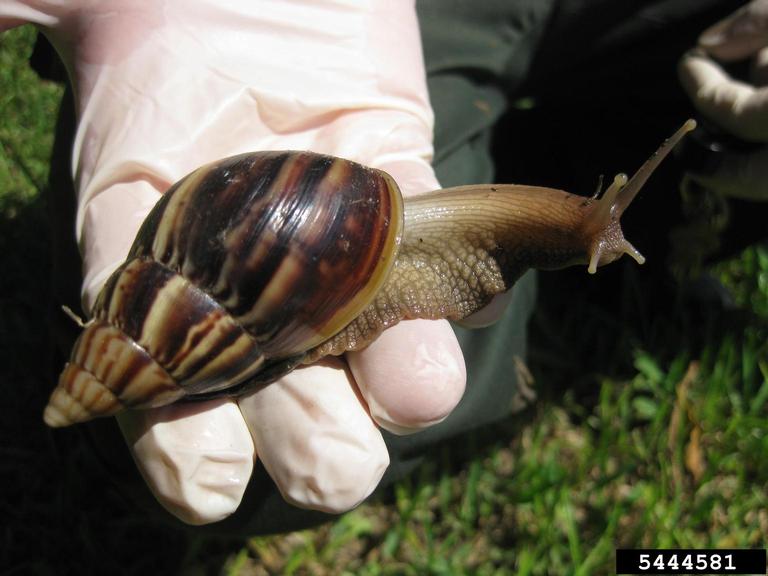You might have heard by now of the giant African land snail, a very large plant- and house-eating snail that was once eradicated from Florida and has been reintroduced, keeping Miami-Dade County residents and regulatory officials alike busy. Giant African land snails’ Florida range had been restricted to Miami-Dade County since they were first detected in September 2011 but the Florida Department of Agriculture and Consumer Services (FDACS) has announced that they were detected in Broward County on September 9, 2014.
Giant African land snails (GALS), Achatina fulica, are unusually large terrestrial snails native to East Africa.

GALS are a concern in the U.S. because of their exceptionally large host plant range of over 500 plants, their high need for calcium, the shrapnel risk posed by their shells, and their ability to vector meningitis.
All commercially produced plants in South Florida are possible hosts for GALS. They leave large holes in plant leaves and fruit as they scrape the plant with their rasping tongue, called a radula. GALS deposit a slimy trail as they move, which is a potential source of pathogen contamination.
As a result of GALS’ rapid growth rate, they have a high need for calcium with which to build their shell and have been found getting this calcium from stucco plaster on South Florida homes. These shells become a shrapnel hazard if caught in a mower blade or under a car tire.
GALS are an intermediate host for the parasitic roundworm Angiostrongylus cantonensis, commonly known as the rat lungworm. Humans can be infected with rat lungworm by consuming raw or undercooked GALS carrying the parasite, or possibly by ingesting GALS slime though this route of infection is debated. Rat lungworm infection in humans causes eosinophilic meningitis (EM), which should not be confused with bacterial or viral meningitis. EM is a specific type of meningitis caused by the infected person’s immune system reacting to rat lungworms in the central nervous system. No cases of EM have been reported in Florida, though rat lungworm has been detected in GALS.
Please visit FDACS’ informational website on GALS to learn more about this invasive pest:
If you think you’ve found a GALS, please contact FDACS at 888-397-1517. Help catch one of Florida’s most wanted!
 0
0

